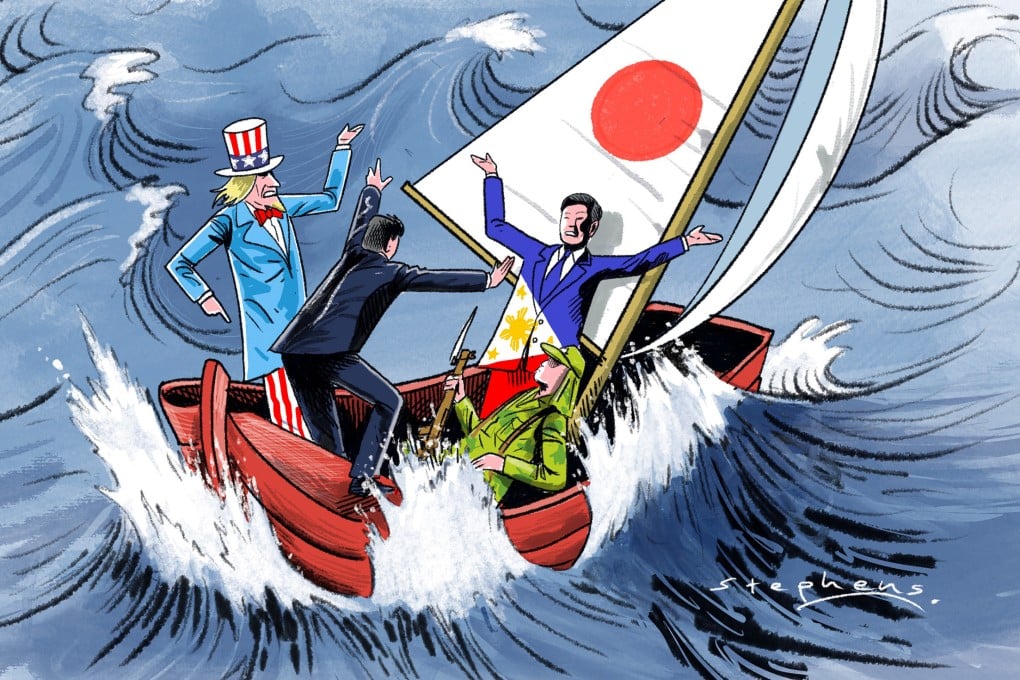Advertisement
Opinion | Japan’s push for anti-China security alliance hits rough waters in Southeast Asia
- Kishida has steered Japan away from its traditional focus on development-centred foreign policy, initiating a new security assistance scheme
- While a more assertive Japan might be welcome in the region, the package is still modest and the potential risks will limit Tokyo’s chances of success
Reading Time:4 minutes
Why you can trust SCMP
7

“We would like to strengthen our cooperation with the Philippines to maintain and strengthen a free and open international order based on the rule of law,” Japanese Prime Minister Fumio Kishida said during his visit to Manila this month. Describing the Philippines as an “irreplaceable partner”, Kishida called for tighter security ties among like-minded nations, most notably an emerging trilateral cooperation among Japan, the Philippines and the United States.
Advertisement
Kishida visited Malaysia soon after, speaking of a “new vision of cooperation” with Prime Minister Anwar Ibrahim. Throughout his historic trip to Southeast Asia, where he launched post-war Japan’s first Official Security Assistance (OSA) initiative, Kishida never directly mentioned China. By all indications, however, he sought to mobilise regional support for a more assertive Japanese defence policy in the region with an eye on Beijing.
Tokyo’s stance is that its new strategic posture is a reflection of the country’s still-sizeable economy and new geopolitical uncertainties in the wake of Russia’s invasion of Ukraine. In many ways, Japan no longer wants to be just a capable sidekick to the US but a full and equal partner in a group of like-minded regional powers.
While many in Southeast Asia might welcome a more assertive Japan as a potential counterweight to China, the reality is that Tokyo’s security assistance package is still too modest to make a dent. Japan also risks overstretching itself by transcending its traditional role as a constructive economic power.
In addition, there are doubts as to whether either the unpopular Kishida administration or its key partners in Southeast Asia are in a position to sustain a major strategic realignment against China, which wields tremendous influence in the region.
Advertisement
Kishida has gradually signalled a new foreign policy direction during the past year. In his keynote address at the 2022 Shangri-La Dialogue in Singapore, he launched his “realism diplomacy”, which effectively ended the country’s development-centred foreign policy. With a reminder that Japan is the world’s third-largest economy, he underscored the necessity for his country to play a more pivotal role in shaping the international security architecture.

Advertisement
